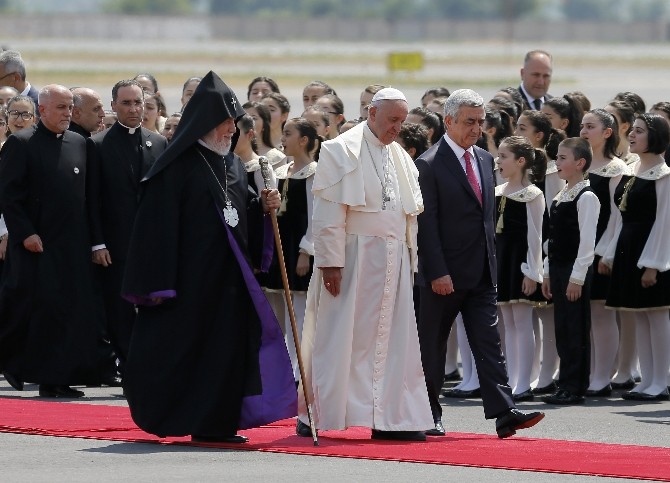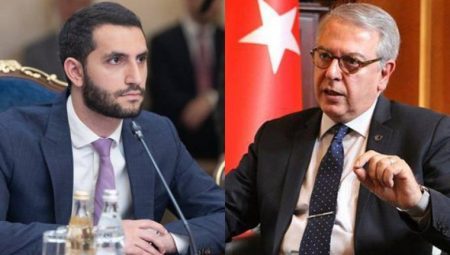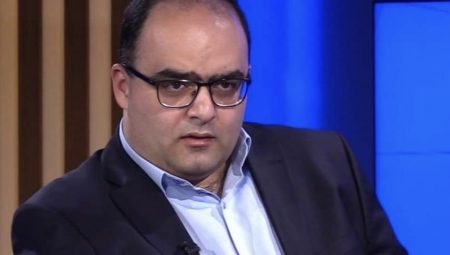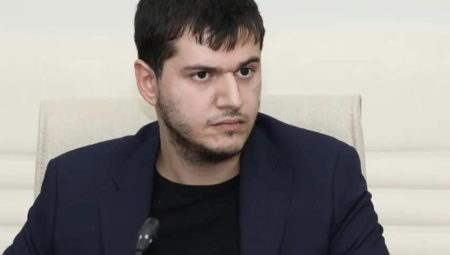Armenia: Pope Francis Impacts Politics
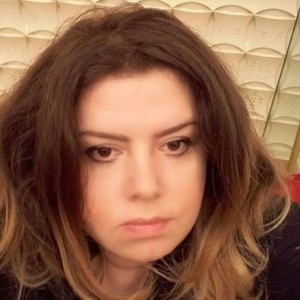
Pope Francis visited Armenia to promote the values of peace and reconciliation, but, for many ordinary Armenians, the pontiff’s June 24-26 trip only deepened a divide that separates them from their own government.
During public events for the pope in both the capital, Yerevan, and the northern town of Gyumri, police arrested political activists demanding the release of alleged political prisoners or blocked their attendance at liturgies and prayer services.
“The regime’s whole operation was devoted to one thing – making sure the pope does not know of the fact that for years there have been political prisoners in the country …” drily remarked Syuzan Simonian, a member of the opposition New Armenia movement.
Both the United States Department of State and London-based rights watchdog Amnesty International have cited Armenian police targeting government critics, but have not provided details about actual political prisoners.
Those who claim that such prisoners do exist in Armenia, however, were kept well away from the pope.
On June 25, in Gyumri, a population hub for Armenian Catholics, police arrested 17-year-old political activist, Shahen Harutiunian, for displaying a poster calling for the release of his father, longtime political activist Shant Harutiunian, from prison as well as “all other Armenian political prisoners.”
A member of Gyumri’s Council of Elders, journalist Levon Barseghian, claimed on Facebook that Harutiunian had called him and said that unknown men had “kidnapped him” by car, Epress.am reported. The police later dismissed the report, saying that they had taken Harutiunian in for a search since he was carrying “some strange items.”
He was released a few hours later after police charged him with disobedience.
In Yerevan, police barred individuals with posters or clothes referring to alleged political prisoners from entering a papal prayer service. Or even those deemed sympathetic to such claims.
“They told me ‘You cannot enter,’” recounted 32-year-old photographer-political activist Vahe Gevorgian.
“When I asked why, ‘the angels’ [promotional videos refer to Armenia’s police as angels who help people – ed] told me that I will spoil it for the pope.”
Even less controversial expressions of good wishes were barred. Known for his one-man protests, civil-rights activist Vardges Gasparian, carrying a poster declaring “We love you, dear Pope,” lay down in a main Yerevan street to protest police barring him from attending the pope’s prayer service.
Several supporters of the opposition Founding Parliament, also with posters about political prisoners, were taken to police stations.
“[T]he fact that the peace prayer provides a reason for arresting and oppressing dozens of citizens does not at all stem from humane principles of reconciliation,” charged women’s rights activist Zara Hovhanissian, denouncing the event as a “performance.”
If he was aware of these events, the pope made no public mention of them.
Travelling in a modest white Renault, surrounded by slick Mercedes and Toyota Land Cruiser Prados conveying representatives of the Armenian Apostolic Church and government, the pontiff impressed many Armenians with his common touch.
Unlike senior representatives of the government and Church, Francis spontaneously hugged children – a heart-tugging move in this family-obsessed society.
“The pope brought completely different values that are in huge contrast with the Armenian reality,” commented Styopa Safarian, founder of the Armenian Institute of International and Security Affairs.
Overall, the pope’s circumspect behavior posed a challenge to Armenia’s self-indulgent government, agreed political scientist Ruben Mehrabian from Yerevan’s Center for Political and International Studies
“The Pope came as an angel, bringing love, belief and human warmth, and a simple attitude,” gushed one of the attendees at the June 25 ecumenical service in Yerevan’s central Republic Square. “This visit showed how much our nation needs love, honesty and a spiritual leader like this.”
Many in Yerevan are still chatting about the pontiff’s down-to-earth behavior. If that continues, reasoned Safarian, a social movement for “human-centric politics” could be born.
But the pope’s “holy” influence is seen to stretch beyond Armenian politics, to the 28-year-long conflict with neighboring Azerbaijan over breakaway Nagorno-Karabakh.
Many Armenians seized on the Vatican’s description of the trip as a visit to “the first Christian nation” as a sign that Francis understands Armenia’s desire for peace. The pope’s description of Ottoman Turkey’s 1915 slaughter of ethnic Armenians as genocide – a definition repeated on June 24 – reinforced that perception.
‘[A] special status was given by the Vatican to Armenia and also a message that it is Armenia in our region that the Vatican sees as the bearer of its values” of peace and reconciliation, asserted Mehrabian.
Along with Armenian Apostolic Church Catholicos Karekin II, Pope Francis released doves toward Turkey, and signed a declaration attesting that their Christian faith means they must seek “peace and reconciliation” in the Armenian-Azerbaijani conflict.
Political analyst Stepan Danielian, director of the Cooperation for Democracy non-governmental organization, believes that such actions were designed to be picked up by the scores of international journalists who covered the pope’s Armenia visit.
“Releasing doves in the direction of Turkey was not a random choice,” he said. “The Karabakh issue, words about the genocide were not random, either. All this presented Armenia abroad from a different angle.”
The Catholic Church has “a huge influence on geopolitical developments,” agreed Safarian. Catholic countries now recognizing the Armenian genocide is just a matter of time, he added.
So far, however, the pope’s words have only sparked anger from Turkey, which denounced the 79-year-old pontiff for a “mentality of the Crusades.”
This fall, the pope will also visit Turkey’s close ally, Azerbaijan, a predominantly Shi’ite Muslim nation, and majority Orthodox Christian Georgia.
During an in-flight press conference on June 26, the pope told reporters that “I will speak to the Azerbaijanis of the truth of what I have seen, of what I have felt and I will also encourage them,” according to a transcript published by Catholic news services.
Faltering on the details, he said that he would speak from the heart, “but always positively trying to find solutions that are viable, that move ahead.”
Marianna Grigoryan


